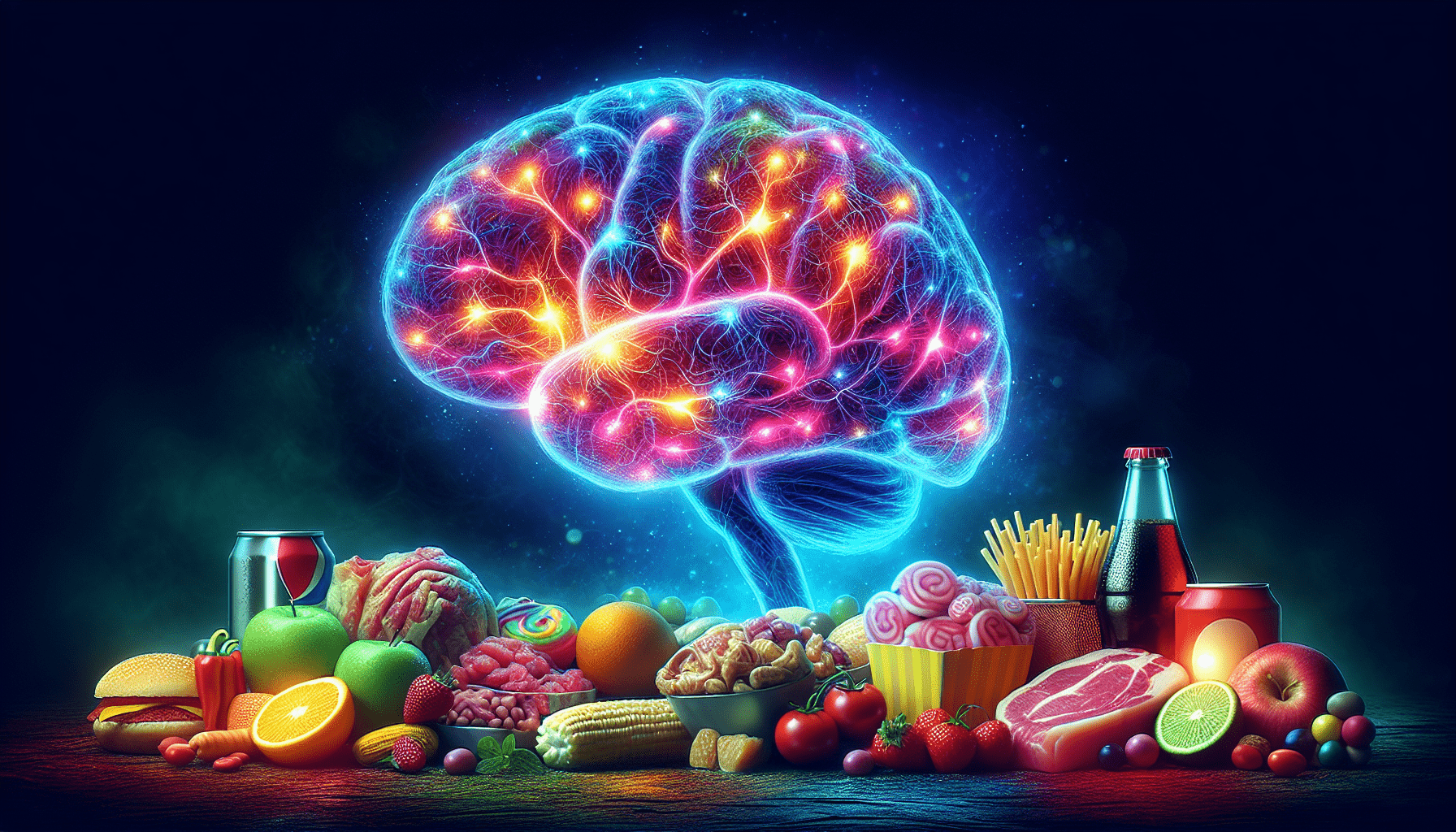What Are The 5 Brain Killer Foods?
Discovering the secrets to maintaining a sharp and healthy mind is essential for your well-being. In “What Are The 5 Brain Killer Foods?” you’ll uncover the specific foods that could be silently sabotaging your cognitive functions. These hidden culprits might be part of your daily diet, impacting your memory, concentration, and overall brain health more than you realize. By identifying and reducing these brain killer foods, you can take proactive steps to protect your mental clarity and ensure a vibrant, healthier future for your mind.
Have you ever wondered why you sometimes experience brain fog or difficulty concentrating? Well, the foods you eat can significantly impact your brain’s health and overall function. In this article, we’ll explore “What Are The 5 Brain Killer Foods?” and uncover the reasons why they might be sabotaging your cognitive well-being.
Processed Foods
High in Unhealthy Fats
Processed foods often contain trans fats and saturated fats. These unhealthy fats can increase inflammation in your brain and impair its function. Chronic inflammation is linked to various neurodegenerative diseases, such as Alzheimer’s.
Loaded with Sugars
The high sugar content in processed foods can lead to spikes in glucose levels, which might temporarily boost your energy but eventually cause a crash. Over time, a diet high in sugar can disrupt your brain’s ability to function properly.
Lack of Nutrients
Processed foods are usually stripped of vital nutrients. Nutrients like vitamins, minerals, and antioxidants are essential for maintaining optimal brain health. When your diet lacks these nutrients, your brain functions at a suboptimal level.
Example: Ready-to-Eat Meals
Ready-to-eat meals often contain preservatives and additives that can be detrimental to your cognitive function. These foods are convenient but far from nutritious. They might save you time but at the cost of your brainpower.
Sugary Drinks
High Fructose Corn Syrup
Most sugary drinks contain high fructose corn syrup, which can cause spikes in insulin levels. This hormonal imbalance can impair brain function and contribute to insulin resistance in the brain, leading to cognitive decline.
Empty Calories
Sugary drinks provide lots of calories with no essential nutrients. This means you’re consuming energy without any benefits for your brain. Over time, this can lead to weight gain and associated health issues that can further compromise your cognitive health.
Impaired Memory
Studies have shown a direct link between high sugar intake and impaired memory function. When consumed in large amounts, sugary drinks can reduce your brain’s ability to form new memories, making learning and retention more difficult.
Example: Sodas and Energy Drinks
Both sodas and energy drinks are packed with sugars and artificial ingredients. While they might give you a temporary jolt of energy, they can lead to long-term cognitive impairment.

Fried Foods
Trans Fats
Fried foods often contain trans fats, which are detrimental to your brain health. These fats can lead to the buildup of plaques in your brain, contributing to conditions such as Alzheimer’s and other forms of dementia.
Oxidative Stress
Frying foods can produce harmful compounds called advanced glycation end products (AGEs), which can cause oxidative stress. Oxidative stress damages cells and tissues in your brain, impairing its function.
Reduced Cognitive Performance
Several studies have indicated that a diet high in fried foods can result in reduced cognitive performance. This means you may find it harder to think clearly, recall information, and make decisions.
Example: French Fries and Fried Chicken
Popular fried foods like french fries and fried chicken are not only high in calories but also full of unhealthy fats. Consuming these foods regularly can negatively impact your brain’s health over time.
Artificial Sweeteners
Aspertame
Aspartame is one of the most common artificial sweeteners found in “sugar-free” products. Studies suggest that aspartame can interfere with neurotransmitter function, reducing cognitive abilities and even causing headaches and mood swings.
Neurotoxicity
Some artificial sweeteners have been identified as neurotoxins, substances that can damage or destroy nerve tissue. Consuming these sweeteners can lead to various forms of cognitive decline and mental fatigue.
Disrupted Gut-Brain Axis
Artificial sweeteners can disrupt your gut microbiota, which plays a crucial role in maintaining brain health. A disrupted gut-brain axis can lead to mental health issues, including anxiety and depression.
Example: Diet Sodas
Diet sodas might be low in calories, but they are often filled with artificial sweeteners. While they may seem like a healthier option, they can harm your brain’s cognitive functions over time.

Excessive Alcohol
Brain Shrinkage
Chronic alcohol consumption can lead to brain shrinkage, reducing the size of certain brain regions. This can impair various cognitive functions, ranging from memory to problem-solving skills.
Neurochemical Disruption
Alcohol disrupts the balance of neurotransmitters in your brain. This imbalance can lead to mood disorders, impaired cognitive function, and even addiction.
Risk of Neurological Disorders
Long-term alcohol abuse is a significant risk factor for various neurological disorders, including Wernicke-Korsakoff syndrome. This syndrome involves severe memory problems, confusion, and other cognitive impairments.
Example: Binge Drinking
Even occasional binge drinking episodes can negatively affect your brain’s health. The cumulative effect of excessive alcohol intake can lead to long-term cognitive decline.
Foods for Brain Health
Omega-3 Fatty Acids
To counteract the effects of these brain killer foods, incorporate foods rich in omega-3 fatty acids like fish, flaxseeds, and walnuts. These healthy fats support brain function and can improve cognitive health.
Antioxidant-Rich Foods
Foods rich in antioxidants, such as berries, spinach, and green tea, can combat oxidative stress and inflammation. These foods help protect your brain from age-related decline and diseases.
Whole Grains
Whole grains like oats, quinoa, and brown rice provide essential nutrients and stable energy for your brain. Unlike processed foods, they are rich in fiber, vitamins, and minerals that support cognitive function.
Hydration
Staying hydrated is crucial for maintaining optimal brain function. Water is the best choice, but herbal teas and natural fruit-infused waters can also be beneficial.
Conclusion
Understanding the impact of these five brain killer foods can help you make better dietary choices for your cognitive health. By avoiding processed foods, sugary drinks, fried foods, artificial sweeteners, and excessive alcohol, you can support your brain’s long-term well-being.
Replace these harmful foods with nutrient-dense options like omega-3 fatty acids, antioxidant-rich foods, whole grains, and plenty of water to keep your brain functioning at its best. Your brain is your most important asset, so take care of it with mindful eating habits.
Additional Resources
My heart froze as I watched this video explaining how these brilliant scientists managed to revoke Alzheimer, dementia and 3 other types of brain diseases in 100% of cases. It was the biggest trial ever run on 7,000 people, from mild to severe memory loss disease. You can check their findings here.
It took them 4 years and a lot of sweat and blood but in the end they actually discovered the real root cause of brain damage and why diseases like Alzheimer and dementia happen to millions these days.
Right now a handful of people can access their findings and the recommendations that so far has helped over 7,000 people during their clinical trial to revoke their memory loss and even escape the terrible Alzheimer and dementia.
See this incredible discovery here.







